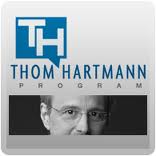 Seattle’s decision to throw the ball at the goal line with 20 seconds to go in last night’s Super Bowl was a costly one. But in the long run, it won’t be nearly as costly to the rest of America as the National Football League itself.
Seattle’s decision to throw the ball at the goal line with 20 seconds to go in last night’s Super Bowl was a costly one. But in the long run, it won’t be nearly as costly to the rest of America as the National Football League itself.
Every year, the NFL rakes in around $9.5 billion in revenue. Its commissioner, Roger Goodell, meanwhile, has an annual salary of $44 million. And while those numbers might make sense for any big business, the NFL isn’t a business - not technically, at least.
According to the Public Law 89-800, it’s a 501(c)6 tax-exempt non-profit. That’s right, a non-profit. In other words, the NFL, one of the most lucrative organizations in all of sports, is subsidized by you and me the taxpayers. If that sounds ridiculous and absurd, that’s because it is ridiculous and absurd.
There’s absolutely no reason why the NFL needs taxpayer subsidies to stay in business. Other sports leagues, like Major League Baseball, stopped taking handouts from the government years ago, and are doing just fine as far as making money is concerned. But juicing the public is what the NFL is all about. And even though individual franchises are taxable for-profit businesses, they all find ways to bleed taxpayers dry.
The most obvious way they do this is by getting the public to foot the bill for their stadiums. According to some studies, taxpayers have actually put forward 70 percent of the cost of NFL stadiums nationwide.
The idea, of course, is that public money is an investment that will pay dividends in the form of booming business activity in the area surrounding the stadium. But there’s no evidence that this is actually the case, and Bloomberg estimates that over the next few decades, taxpayers will lose almost $4 billion on stadium deals. And to make matters worse, money that’s spent on NFL stadium deal is money that then can’t be spent on more important things, like healthcare.
As Gregg Easterbrook pointed out in an article for The Atlantic, the $26 billion in subsidies that taxpayers in the Cincinnati area forked over to help pay for two local stadiums “exceeded the $23.6 million that the county cut from health-and-human-services spending in the current two-year budget.”
Oh, and all this comes at the same time as the public has to deal with the increasing human costs of what it means to play in the NFL.
The evidence is overwhelming that playing football leads to permanent brain damage, but since the league’s healthcare coverage only last 5 years after a player retires, you and me - the premium payers and taxpayers - end up having to pay for the damage caused by a grueling NFL career.
You really couldn’t ask for a better symbol of everything that’s wrong with American predatory capitalism. Like the fossil fuel industry that pumps toxic greenhouse gasses into the atmosphere while taking in millions of subsidies or the fast food industry that depends on taxpayers to cover with welfare programs what it’s skimpy wages will not, the NFL is based on one simple formula: privatize the gains and socialize the losses.
Sure, building a stadium on the public dime isn’t as terrible for the world as pumping carbon dioxide into the atmosphere, but it still shows just how tilted the scales are in favor of the rich and powerful, and how easy it is for giant corporations to turn the government into their personal welfare program. For example, Koch brothers darling Scott Walker, the Republican governor of Wisconsin, has proposed spending $500 million - about half of it government money - on a new stadium for a basketball team, while cutting $300 million from Wisconsin's schools. This is how George W. Bush made his first millions, with the Texas Rangers, and an example of crony capitalism of the worst kind.
Lawmakers from both political parties have proposed revoking the NFL’s tax exempt status, and that’s a great idea. But this isn’t really about the NFL or football, for that matter. It’s about what kind of economic system we want to live in.
Do we want an economy that subsidizes billionaires and private corporations at the expense of the public or do we want an economy that works for all? That’s the question we should all ask ourselves, football fans or not.



